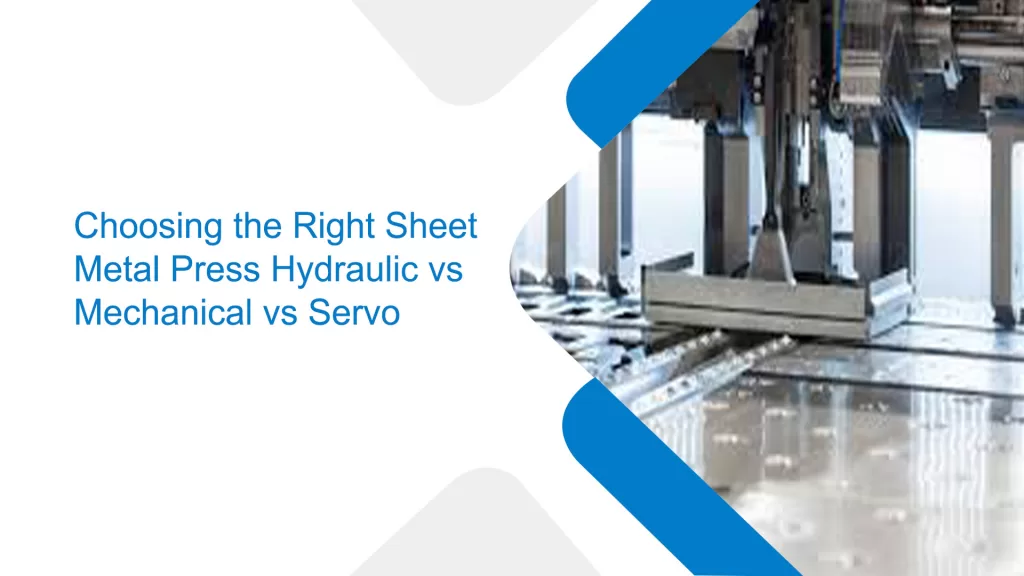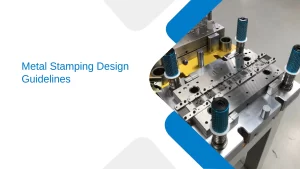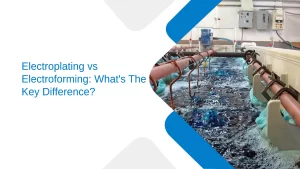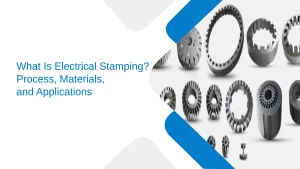Choosing the Right Sheet Metal Press: Hydraulic vs. Mechanical vs. Servo
- Metal Stamping |
- Jul 16, 2025

If you work in metal manufacturing, picking the correct sheet metal press is more than just a technical choice; it’s a strategic one. The press you choose will affect how quickly you can make things, how good the parts are, how much maintenance you’ll require, and even how much it will cost you in the long run.
Today’s market has a lot of different types of press machines because technology has come a long way. But the key question is still: Which is best for your business: a hydraulic press, a mechanical press, or a servo press?
We’ll go over the main distinctions between each type in this guide, as well as what they’re best for and how to choose the right one for your production needs.
Knowing the Different Types of Key Press Machines
Let’s quickly go over the three most popular types of press machines used in modern metalworking before we start comparing them.
- Hydraulic Press: Uses pressure from a liquid to apply force. Known for being flexible and applying constant pressure.
- Mechanical Press: Works with a crank and flywheel. Great for making things quickly.
- Servo Press: Uses a servo motor to control the speed and stroke in a programmable way. Provides accuracy and speed.
Each form of stamped metal part has its own job, from auto body panels to electrical enclosures and everything in between.
Powerful and flexible hydraulic presses
Manufacturers use hydraulic presses a lot because they can do a lot of different things and can handle a lot of force. When working with heavier or high-tensile materials, they are a preferred alternative.
Advantages of Hydraulic Presses:
- They may deliver full tonnage at any point in the stroke.
- Great for deep sketching and shaping tasks
- It’s easy to change the pressure and pace.
Hydraulic presses are slower than other varieties, but they are more consistent and adaptable, which is very useful when making complicated stamped metal parts.
Mechanical Presses: Power for Fast Production
If you need speed, mechanical presses are often the best choice. These machines are great for mass manufacturing because they employ a flywheel to produce force.
Advantages of Mechanical Presses:
- Very short cycle durations
- Using little energy as it works
- Great for blanking or stamping that isn’t too deep
But when it comes to hydraulic press vs. mechanical press, one negative of mechanical systems is that they don’t have as much control at the bottom of the stroke. They’re ideal for jobs that need to be done in the same way every time and where volume is more important than flexibility.
Servo Presses: High Precision with Full Control
The servo press is the new competitor. This machine has advanced servo motor technology that lets it be fast, powerful, and programmable.
Benefits of Servo Press:
- You may change the pace and position of the stroke.
- Very efficient with energy
- Very little noise and vibration
- Less wear on the die and less work to keep the tools in good shape
Servo presses are great for jobs that need a lot of accuracy, such making electronics, medical items, or high-end stamped metal parts. They also let you adjust the setup quickly, which makes them great for work shops with changing needs.
Hydraulic Press vs Mechanical Press vs Servo: Key Differences
| Feature | Hydraulic Press | Mechanical Press | Servo Press |
| Force Control | Excellent | Limited | Excellent |
| Speed | Slower | Fastest | Adjustable |
| Precision | High | Moderate | Very High |
| Maintenance | Medium | Low | Low |
| Flexibility | Very High | Low | Very High |
| Energy Use | High | Low | Efficient |
When choosing between hydraulic press vs mechanical press, consider whether your operation needs flexibility or speed. Servo presses, while more expensive upfront, offer a balance of both with added servo press benefits like energy savings and long-term consistency.
How to Pick the Best Sheet Metal Press for Your Needs
Still not sure which one to choose? Here’as how to limit it down based on what you need:
- If you’re making a lot of simple pieces, a mechanical press is the way to go.
- Type and thickness of the material: If you need to form thick or unusual materials deeply, use a hydraulic press.
- Flexibility and Precision: Buy a servo press for great accuracy, automation, and enhanced control over forming.
- Budget Constraints: Mechanical presses cost less up front, but servo presses are superior in the long run since they use less energy and can do more things.
Make sure that the sheet metal press you choose fits your production needs and can handle the types of stamped metal parts your facility makes, no matter what type it is.
Last Thoughts
The correct sheet metal press is the most important part of your metal forming process. There is a machine that is right for your job, whether you require the physical strength of a hydraulic press, the quick cycles of a mechanical press, or the clever control of a servo press.
You may make a smart investment in one of these press machines that will increase productivity, ensure part quality, and get your business ready for future needs if you know the main distinctions between them.
Think about your long-term needs and how technology like servo press benefits can help you stay ahead of the competition in the ever-changing world of manufacturing.




